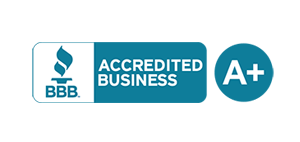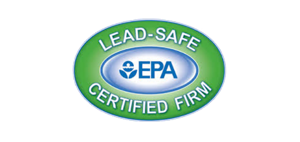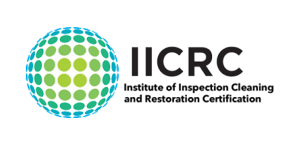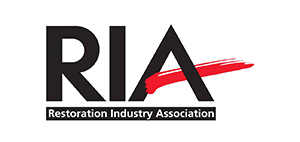Water damage can be a devastating event that can wreak havoc on your property and lead to costly repairs. Understanding the most common causes of water damage is crucial for protecting your property and preventing potential disasters.
One of the most frequent causes of water damage is plumbing issues. Leaking pipes, burst pipes, faulty plumbing fixtures, and improper installation can all result in significant water damage. It’s essential to address these problems promptly and conduct regular maintenance to ensure the integrity of your plumbing system.
However, plumbing issues are not the only culprits. External factors like severe weather conditions, flooding, improper landscaping, and inadequate drainage systems can also contribute to water damage. Implementing preventive measures and proper landscaping can help divert water away from your property and reduce the risk of damage.
Appliance malfunctions are another leading cause of water damage. Faulty washing machines, dishwashers, refrigerators, and water heaters can leak and create disastrous consequences. Regular appliance maintenance is essential to prevent potential malfunctions and subsequent water damage.
By understanding the common causes of water damage and taking preventive measures, you can protect your property from the devastating effects and potential financial burden of water damage. Stay informed, stay proactive, and safeguard your property against this common threat.
Plumbing Issues: A Leading Cause of Water Damage
When it comes to water damage, plumbing issues are a common culprit. Leaky pipes, burst pipes, faulty plumbing fixtures, and improper installation can all lead to significant water damage in your home or property. It’s important to be aware of these potential problems and take proactive measures to prevent them.
Pipe leaks: Leaking pipes are a major cause of water damage. Over time, pipes can become corroded or damaged, leading to leaks that can go unnoticed for weeks or even months. These leaks can result in serious water damage, affecting walls, ceilings, and floors.
Burst pipes: Burst pipes can cause significant flooding and immediate water damage. This often occurs during freezing temperatures when water inside the pipes expands, causing them to burst. It’s crucial to insulate pipes in colder climates to prevent this type of damage.
Faulty plumbing fixtures: Faucets, showerheads, and toilets with worn-out or faulty components can cause water leaks that lead to water damage. Regularly inspecting and maintaining these fixtures can help identify and address any issues before they escalate.
Improper installation: Incorrectly installed plumbing systems can result in leaks or other plumbing issues that contribute to water damage over time. Hiring a qualified plumber to handle installations can help ensure proper functioning and prevent future problems.
Plumbing issues can have severe consequences if left unaddressed. Water damage can lead to structural damage, mold growth, and the need for costly repairs. To protect your property from the damaging effects of plumbing issues, it’s essential to schedule regular maintenance and inspections by a licensed plumber. Additionally, promptly addressing any signs of plumbing problems, such as leaks or low water pressure, can help prevent further damage.
| Common Plumbing Issues | Potential Consequences |
|---|---|
| Leaky pipes | Water damage to walls, ceilings, and floors |
| Burst pipes | Flooding and immediate water damage |
| Faulty plumbing fixtures | Water leaks leading to property damage |
| Improper installation | Long-term water damage and future plumbing issues |
External Factors: Contributing to Water Damage
In addition to plumbing issues, external factors can also play a significant role in causing water damage to your property. It’s essential to be aware of these external factors and take preventive measures to protect your home or business.
One of the primary external factors that can lead to water damage is severe weather conditions. Heavy rainfall, storms, or hurricanes can result in overflowing gutters, leaky roofs, and basement flooding. The excess water can seep into the structure of your property, causing significant damage to the foundation, walls, and flooring.
Proper drainage is essential to prevent water from accumulating near your property. Regular gutter cleaning and maintenance can help ensure that rainwater is directed away from your building.
Flooding is another external factor that can result in extensive water damage. Whether it’s due to natural disasters or a nearby body of water overflowing, flooding can quickly infiltrate your property and cause devastation.
To mitigate the effects of flooding, consider implementing flood-resistant measures such as installing flood barriers, elevating electrical systems, and waterproofing basements. It’s also crucial to have a comprehensive flood insurance policy to protect against financial losses.
Improper landscaping can contribute to water damage as well. If the terrain around your property is not properly graded or sloped, water can accumulate near the foundation, leading to leaks and structural damage.
Implementing proper landscaping techniques, such as grading the land away from the building, can help redirect water and prevent potential water damage. Additionally, installing a drain tile system or French drain can further assist in managing excess water.
Lastly, an inadequate drainage system can exacerbate water damage problems. If your property lacks proper drainage infrastructure, water may have nowhere to go, causing it to accumulate around your building.
To address this issue, consider consulting with a professional to assess your drainage system and recommend appropriate measures to ensure efficient water flow away from your property.
External Factors and Their Impact on Water Damage
| External Factors | Impact on Water Damage |
|---|---|
| Severe Weather Conditions | Overflowing gutters, leaky roofs, basement flooding |
| Flooding | Infiltration of water into the property |
| Improper Landscaping | Water accumulation near the foundation |
| Inadequate Drainage System | Lack of efficient water flow away from the property |
Understanding the external factors that contribute to water damage and implementing the necessary preventive measures can help safeguard your property from potential harm. By addressing these external factors, you can minimize the risk of water damage and protect your investment.
Appliance Malfunctions: Another Cause of Water Damage
When it comes to water damage, appliance malfunctions can often be the silent culprits. Malfunctioning washing machines, dishwashers, refrigerators, and water heaters can lead to significant water damage if not addressed promptly. Understanding the risks associated with appliance malfunctions is crucial for protecting your property and preventing costly repairs.
An appliance malfunction can cause water damage in several ways. For instance, a leaking washing machine can result in extensive water damage to your flooring, walls, and nearby furniture. Similarly, a faulty dishwasher can lead to water seeping into cabinets and causing damage to the surrounding structure. Even a small leak from a refrigerator or water heater can go unnoticed for a long time, causing water damage to your property’s interior.
Regular maintenance is key to preventing appliance malfunctions. Schedule routine inspections and servicing for all your appliances to identify any potential issues before they escalate. This proactive approach can save you from the hassle and expense of dealing with water damage.
When conducting appliance maintenance, pay attention to signs of wear and tear, unusual sounds, and changes in performance. Additionally, check for any leaks, loose connections, or clogs in the water supply lines. These simple checks can help you detect and address potential problems before they lead to water damage.
If you notice any appliance malfunction or water damage, it is essential to act quickly. Turn off the water supply and contact a professional appliance repair service to assess and repair the issue. Remember, delaying repairs can worsen the problem and result in more extensive water damage to your property.
By recognizing the risks associated with appliance malfunctions and taking proactive measures, you can protect your property from significant water damage. Prioritize regular appliance maintenance and address any issues promptly to safeguard your home and belongings.
Conclusion
In conclusion, understanding the most common causes of water damage is crucial for protecting your property. Plumbing issues, such as pipe leaks and faulty fixtures, are a leading cause of water damage. Regular maintenance and inspections can help prevent these problems.
External factors, such as severe weather conditions and flooding, can also contribute to water damage. Implementing proper landscaping and drainage systems can help redirect water away from your property and minimize the risk.
Additionally, appliance malfunctions, including malfunctioning washing machines and water heaters, can result in water damage. Regular maintenance and prompt repairs can prevent leaks and malfunctions that could lead to costly damage.
By being proactive and taking preventative measures, such as regular inspections, maintenance, and implementing proper landscaping, you can protect your property from water damage. Remember, if you suspect any water damage issues, it’s important to seek professional help to address the problem promptly.
FAQ
What are the most common causes of water damage?
The most common causes of water damage include plumbing issues such as pipe leaks and burst pipes, external factors like severe weather conditions and flooding, and appliance malfunctions like leaking washing machines or water heaters.
How can I protect my property from water damage?
To protect your property from water damage, you should regularly inspect and maintain your plumbing system, including checking for leaks and ensuring proper installation. Implementing proper landscaping to redirect water away from your property and installing adequate drainage systems can also help prevent water damage.
What should I do if I suspect water damage in my property?
If you suspect water damage in your property, it is important to act quickly. First, identify and address the source of the water, such as a leaking pipe or appliance. Then, dry out the affected areas and remove any standing water. Finally, contact a professional water damage restoration company to assess the damage and perform necessary repairs.
How can I prevent appliance malfunctions from causing water damage?
Regular appliance maintenance is crucial in preventing appliance malfunctions that could lead to water damage. This includes checking for leaks, ensuring proper connections, and addressing any signs of wear or damage. It is also recommended to replace old or faulty appliances to minimize the risk of water damage.
Are there any signs of water damage that I should look out for?
Yes, there are several signs of water damage that you should be aware of. These include water stains on walls or ceilings, musty odors, mold or mildew growth, warped or discolored flooring, and a sudden increase in your water bill. If you notice any of these signs, it is important to investigate and address the potential water damage issue promptly.





















